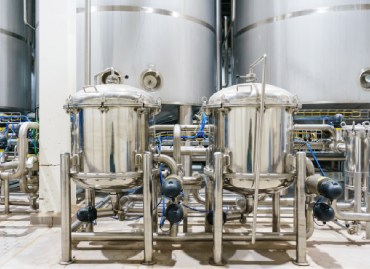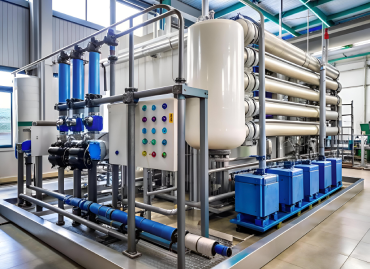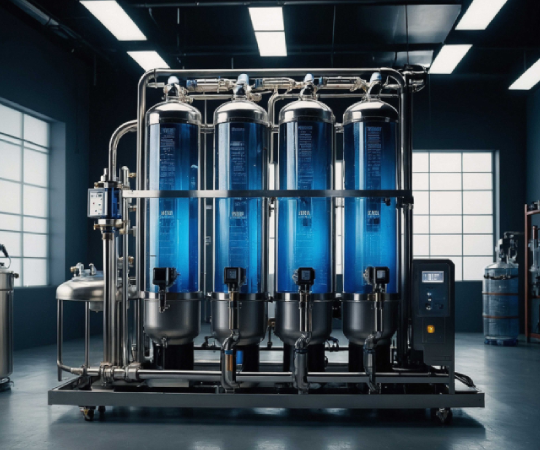- By Admin
- 06 Sep 2025
- ETP Plant
Advanced Wastewater Treatment Technologies Driving Sustainable Brewery Operations Across India
Water is a fundamental ingredient in brewing, integral to nearly every stage of production. From the initial mashing and fermentation to cooling, cleaning, and packaging, breweries consume large volumes of water daily. Maharashtra, home to brewing hubs such as Mumbai, Pune, and Nashik, has witnessed rapid industry growth, further intensifying water demand.
On average, breweries use four to six litres of water to produce one litre of beer, encompassing all direct and indirect processes. This high consumption emphasises the urgent need for sustainable water management to balance industrial growth with environmental stewardship.
"Water shapes the heart of every brewery, flowing through every process and flavour. Protecting and recycling this precious resource is not just an operational choice but a duty—ensuring that brewing remains sustainable, responsible, and respectful to the environment that nurtures it and the communities it serves."
Complexity of Brewery Wastewater
Brewery wastewater contains a unique combination of organic and chemical contaminants. Organic matter includes spent yeast, residual sugars, proteins, and other fermentation by-products. The cleaning and sanitisation of equipment introduces chemicals such as detergents and sanitisers into the wastewater. Additionally, cooling water often carries thermal pollution and chemical residues. The diverse nature of this wastewater demands multi-stage treatment methods to remove pollutants and prevent environmental damage effectively.


Traditional and Biological Wastewater Treatment
Effluent Treatment Plants (ETPs) are the backbone of wastewater management in breweries. The process begins with mechanical screening and sedimentation to remove solids. Chemical treatment steps, such as coagulation and flocculation, then target suspended particles and some dissolved contaminants. Biological treatments follow, where activated sludge or aeration tanks use microorganisms to degrade organic matter. This multi-step process produces treated water that meets regulatory discharge standards or can be reused in the brewery for non-potable applications like cleaning and irrigation.
Adoption of Advanced Technologies: RO, ZLD, and MBR
Beyond conventional methods, many breweries in India are implementing advanced wastewater treatment technologies to enhance water reuse and reduce environmental impact. Reverse Osmosis (RO) systems purify treated water further by removing dissolved solids, making it suitable for reuse in cooling or cleaning processes. Zero Liquid Discharge (ZLD) systems represent a cutting-edge approach, recovering nearly all water by evaporating wastewater and crystallising solids, leaving no liquid discharge behind. Membrane Bioreactors (MBRs) combine biological treatment with membrane filtration to provide high-quality effluent in a compact footprint, ideal for breweries with limited space or stricter discharge regulations.
Tailored Water Treatment Solutions for Diverse Brewery Needs
Each brewery operates under different conditions, including varying water quality, production volumes, and regulatory requirements. Recognising this, companies now offer customised water treatment solutions that combine ETPs, RO, ZLD, and other technologies in configurations designed for individual brewery needs. Such tailored systems optimise water use efficiency, reduce operational costs, and ensure compliance with environmental standards. Moreover, comprehensive service packages including installation, maintenance, and monitoring ensure the systems perform reliably over time.
The Path Forward for Sustainable Brewing
Sustainability has become a core focus of India's brewing industry. By integrating traditional treatment methods with modern technologies and customised solutions, breweries can significantly reduce freshwater consumption and wastewater discharge. This transformation not only supports regulatory compliance but also improves the industry's environmental footprint and public image. With growing consumer and governmental emphasis on sustainability, adopting advanced water and wastewater management practices is essential for breweries aiming for long-term success.
Summary And Conclusion
India's brewery industry is evolving rapidly with sustainability at its core. In Maharashtra and beyond, breweries are implementing a mix of traditional Effluent Treatment Plants and advanced technologies like Reverse Osmosis and Zero Liquid Discharge to treat and reuse water efficiently. Customised solutions tailored to each brewery's scale and operational needs enhance water conservation, reduce pollution, and lower costs. Together, these practices foster a sustainable brewing environment that balances industrial growth with ecological responsibility. This integrated approach sets the foundation for the future of Indian brewing, safeguarding water resources and ensuring environmental compliance.































































